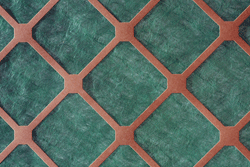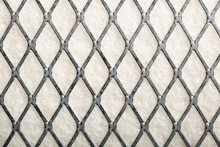Buying the right furnace filter can make a big difference. With all of the choices out there, it can be hard to make a proper decision. However when you take into account all of the factors that are important to you in regards to your family’s health, indoor air quality and cost, the choice becomes much easier.First you must consider the efficiency of your filter by looking at its minimum efficiency reporting value, or MERV rating. The MERV ranges from 1-20, with 1 being the cheapest and least restrictive to airflow and 20 being the most efficient, collecting 99.9 percent of all airborne particles.A low-MERV filter provides just enough protection to keep larger particles out of the furnace. These are cheaper to use but do little to improve air as they are solely to keep your HVAC unit dust free. A cost-effective MERV 4 filter allows for decent airflow and catches most large particles like dust and lint and are good if you’re not overly concerned with air quality.These filters may be fine if you don’t have allergies; however, if you are sensitive to airborne allergens, you may want to consider installing an electrostatic furnace filter with a MERV rating between 8-10 that will catch pollen, spores and dander. If someone in your family has low immunity, consider a high efficiency, pleated synthetic cotton filter with a MERV of 14 or higher. These can be removed and cleaned, catch bacteria, most smoke and can last up to six years, if properly maintained. While they do cost more, they will save you money in health care costs.Whichever you do choose, remember that filers with higher MERV ratings require more attention and regular cleaning or replacement. While higher quality filters remove more particles, they also put more strain on your unit due to reduced airflow so it is advisable to contact a qualified HVAC technician before making a change.For more information on furnace filters and HVAC needs, contact Air Assurance, servicing the Tulsa Metropolitan region since 1985.Our goal is to help educate our customers in the Tulsa and Broken Arrow, Oklahoma area about energy and home comfort issues (specific to HVAC systems).
Credit/Copyright Attribution: “Jezper/Shutterstock”





